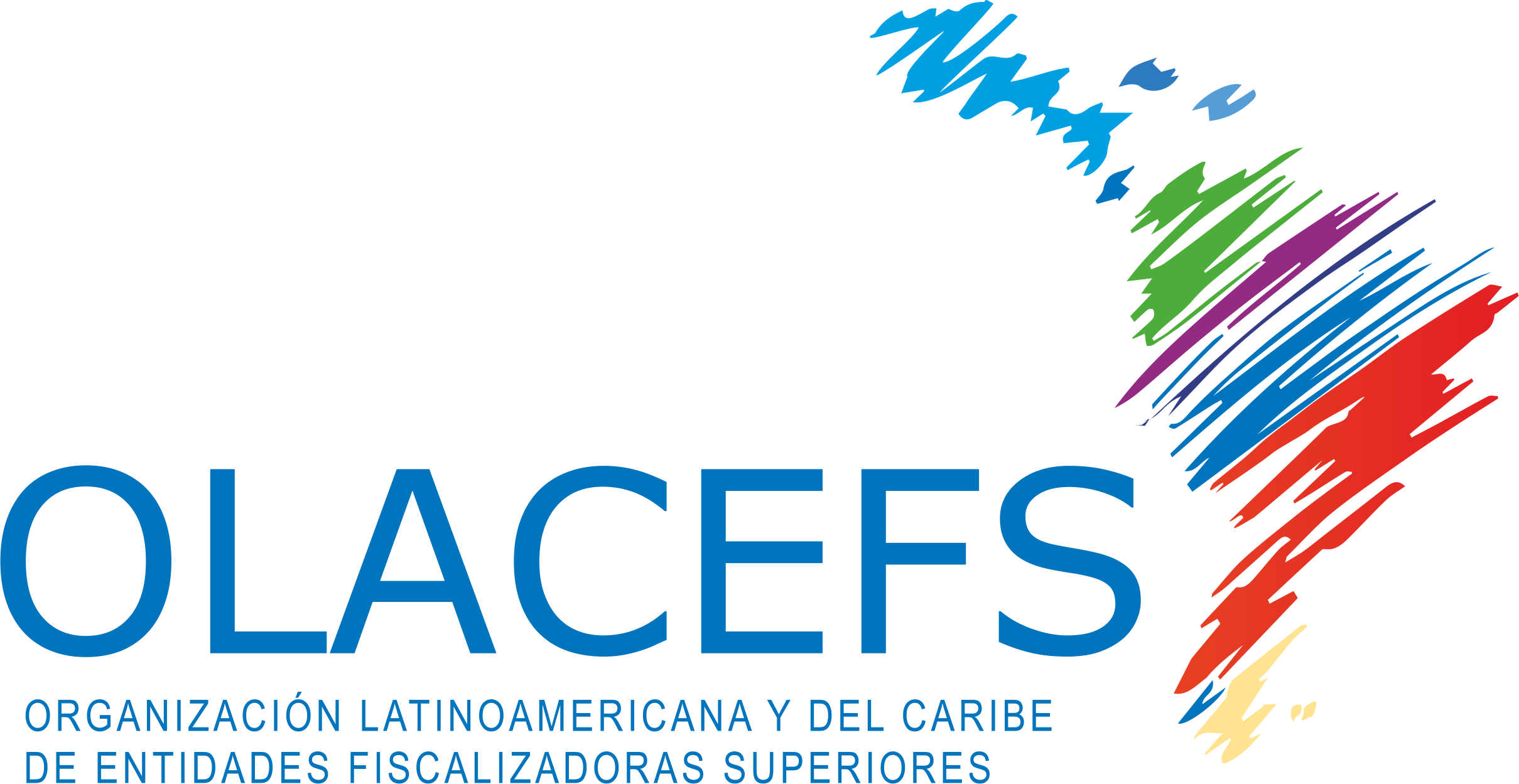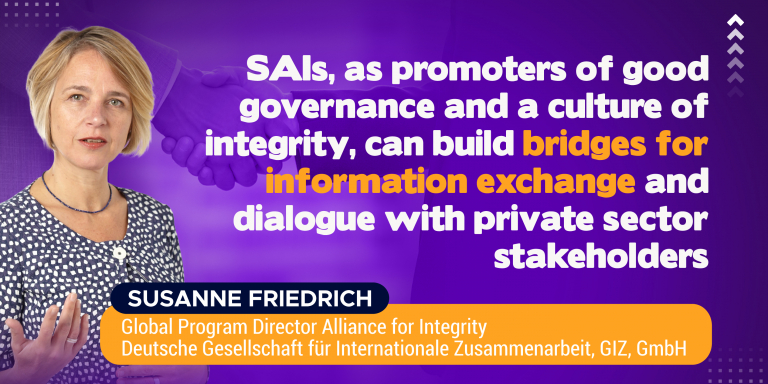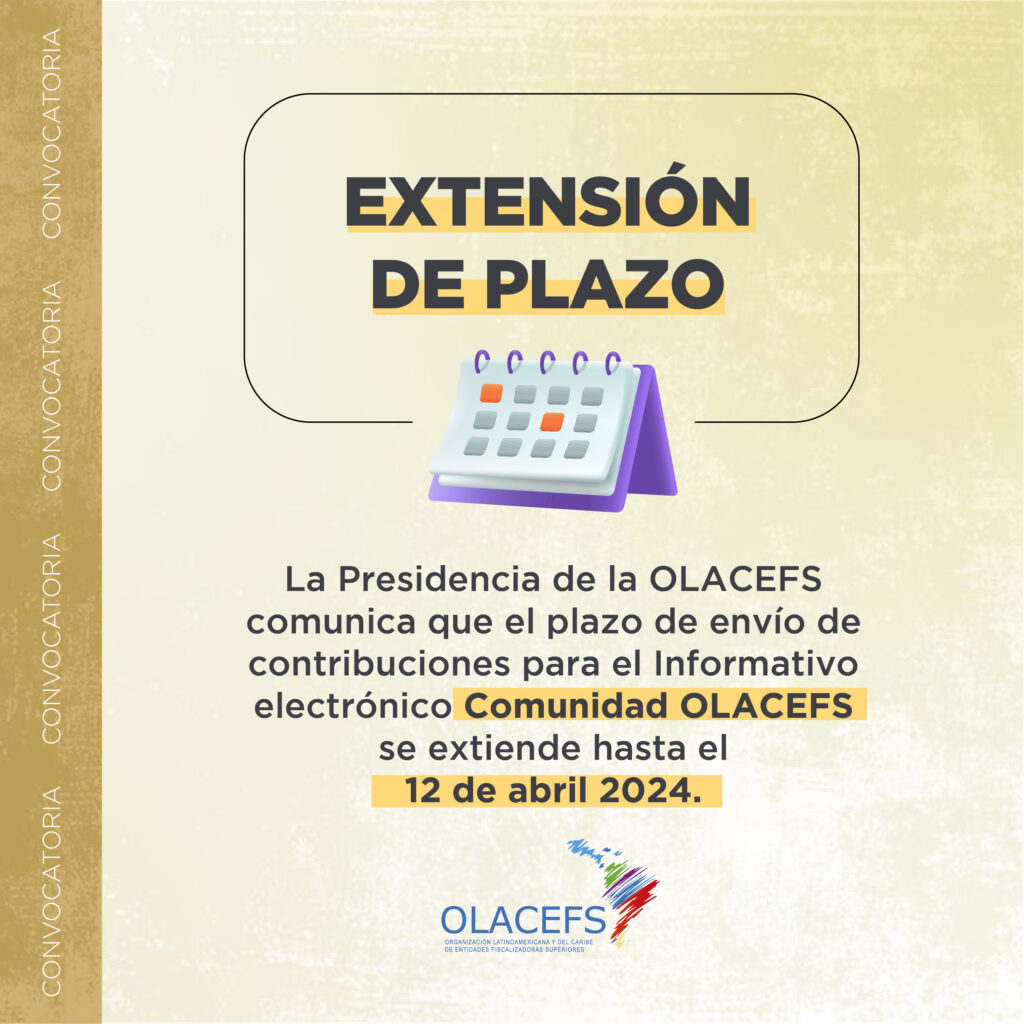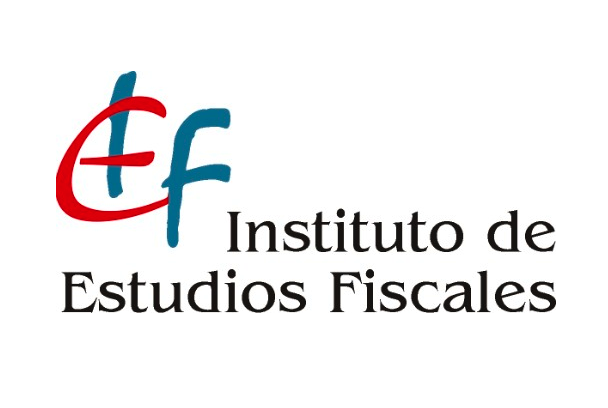SUSANNE FRIEDRICH
Global Program Director Alliance for Integrity
Deutsche Gesellschaft für Internationale Zusammenarbeit (GIZ) GmbH
Companies, in a context of increasingly demanding national and international anti-corruption standards, have an obligation to prevent corruption within their own organization and among their business partners along the supply chain. Therefore, it is often assumed that the main reason that companies adopt anti-corruption compliance measures is fear of the application of the law and the consequent deterioration of the company‘s reputation.
A recent OECD study, which aims to better understand why companies choose to devote time and resources to developing anti-corruption programs, shows that this is not the case. The motivations are multiple, both external (fear of prosecution, demands from investors or business partners, among others) and internal (values of the company‘s leaders, for example). They often work together and have cumulative effects on a company (p.14). Strengthening anti-corruption legislation is a necessary tool for preventing corruption, but it should not be the only one.
According to the study, companies willing to fight corruption expect governments to support companies‘ efforts with appropriate incentives. Companies are also looking for more accessible learning opportunities and analytical tools. This includes possibilities for exchanging information and good practices at the local level and through online tools. Companies underscored the need for secure exchange forums where they can share best practices with other companies in their sector and affirm that awareness of corruption risks is still necessary (p.75).
The recently published B20 recommendations on integrity and compliance point in the same direction: “G20 countries should work with the private sector to implement or improve national anti-corruption plans and adopt new collective action initiatives.” (Policy Action 1.1)
Taking these demands into account, complementing legal measures with other measures arising from the interests and motivations of companies, can strengthen and broaden the impact of the legislation. How? Through collective anti-corruption action.
Collective action is a recognized and increasingly used form of dealing with corruption. Collaboration among competitors, local authorities, government agencies and civil society to address bribery risks common to market participants can be an effective way to prevent and reduce corruption. Collective actions can have different objectives, from the exchange of information and dissemination of good practices, to the development of capacities and the formulation of sectoral codes of conduct, among others. The various participating actors contribute their knowledge, experiences, contacts and other resources.
What does collective action mean for SAIs whose task is not primarily the prevention of corruption? SAIs contribute to fostering transparency in the public sector by promoting financial management systems based on reliable reports and sound control mechanisms. SAIs provide the public with information on financial management standards and thus promote a financial control system. At the same time they provide a solid framework to support the predictability of government operations. Thus, SAIs play an important role in raising awareness about the risks of corruption and promoting good governance by strengthening a culture of integrity, beyond the public sector (see U4 ). These functions make them key actors for collective anti-corruption actions.
Alliance for Integrity is a collective action of German origin. As a global, multi-stakeholder initiative promoted by the business sector, it offers support to companies committed to fighting corruption collectively and in a practical way. It provides a platform for the private and public sectors and civil society to foster global peer learning and join forces towards creating a world of business characterized by integrity. Corruption can pose particular problems for SMEs, which often lack the ability to cope with an opaque economic system and to design and implement anti-corruption strategies. For them, the Alliance for Integrity has developed a capacity building program that is collectively implemented by the initiative‘s members, currently in thirteen countries.
In Latin America, where the network of actors is very committed, the initiative has been extended to eight countries. Alliance for Integrity is currently cooperating with two SAIs in the region.
With the Office of the Comptroller General of the Republic of Chile (CGRC), various activities are being carried out to raise awareness and disseminate good practices in the framework of national, regional and international forums. As an example, the CGRC, together with the Alliance for Integrity and with the support of the Chilean-German Chamber of Industry and Commerce (CAMCHAL), holds an annual International Anti-Corruption Seminar where good practices are promoted in the public and private sectors, as well as in civil society organizations.
In Paraguay, the Office of the Comptroller General of the Republic is part of the Alliance for Integrity’s group of trainers for the private sector. This allows the Office of the Comptroller to design and develop, in conjunction with the Alliance for Integrity and the Paraguayan-German Chamber of Industry and Commerce, various training and awareness-raising activities for SMEs in the country.
In Brazil, the Alliance for Integrity has worked closely with the Office of the Comptroller General of the Union (CGU) to bring technology closer to internal control. TheIntegrityApp, a digital compliance program self-assessment tool designed for the private sector, was adapted for the public sector in a new version. The tool allows public officials in Brazil to anonymously assess the compliance capacity of their superiors and their entities, as well as their own knowledge of compliance. The CGU regularly receives reports with the anonymized data of the users, which allows it to have an overview of the compliance capacities of the participating organizations to direct their resources according to the real needs.
These encouraging experiences have prompted a dialogue with the OLACEFS to expand collaboration with the Alliance for Integrity in the areas of awareness and capacity building in the private sector. Given the diverse motivations of companies to prevent corruption, SAIs, in their role as promoters of good governance and a culture of integrity, can build important bridges for dialogue and the exchange of information among the main stakeholders. This will make it possible to initiate legitimate and effective debates in the fight and prevention of corruption and to promote the implementation of concrete solutions.
About the Author:
Susanne Friedrich heads the Alliance for Integrity. As an Organizational Development Specialist, Susanne has many years of experience in managing public-private initiatives and capacity building. He has implemented several projects of the German Cooperation for Development in Latin America and worldwide, working on inclusive business models and sustainable value chains, as well as SME export promotion. She directed a project on capacities for decentralization in the Andean region. Previously, she worked at Prochile and served for ten years as an independent consultant on public-private projects.
